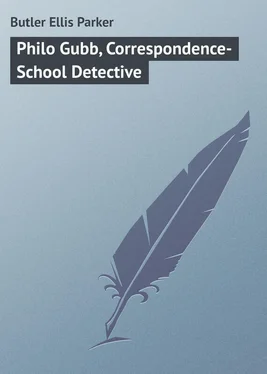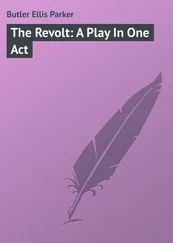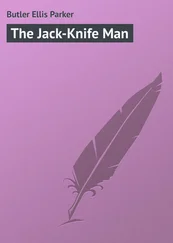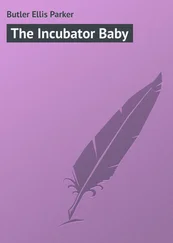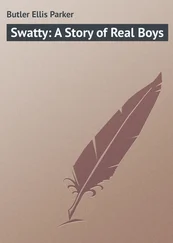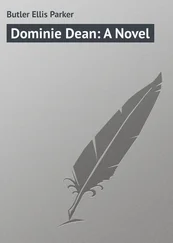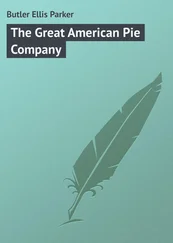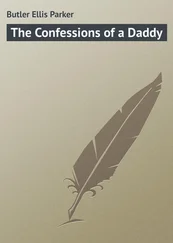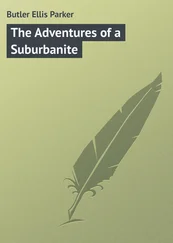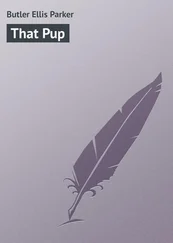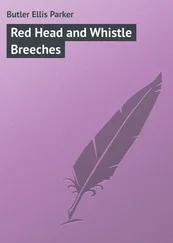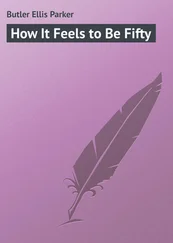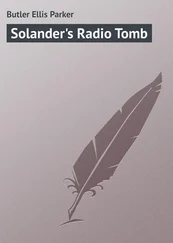Ellis Butler - Philo Gubb, Correspondence-School Detective
Здесь есть возможность читать онлайн «Ellis Butler - Philo Gubb, Correspondence-School Detective» — ознакомительный отрывок электронной книги совершенно бесплатно, а после прочтения отрывка купить полную версию. В некоторых случаях можно слушать аудио, скачать через торрент в формате fb2 и присутствует краткое содержание. Жанр: Классический детектив, foreign_detective, foreign_prose, на английском языке. Описание произведения, (предисловие) а так же отзывы посетителей доступны на портале библиотеки ЛибКат.
- Название:Philo Gubb, Correspondence-School Detective
- Автор:
- Жанр:
- Год:неизвестен
- ISBN:нет данных
- Рейтинг книги:5 / 5. Голосов: 1
-
Избранное:Добавить в избранное
- Отзывы:
-
Ваша оценка:
- 100
- 1
- 2
- 3
- 4
- 5
Philo Gubb, Correspondence-School Detective: краткое содержание, описание и аннотация
Предлагаем к чтению аннотацию, описание, краткое содержание или предисловие (зависит от того, что написал сам автор книги «Philo Gubb, Correspondence-School Detective»). Если вы не нашли необходимую информацию о книге — напишите в комментариях, мы постараемся отыскать её.
Philo Gubb, Correspondence-School Detective — читать онлайн ознакомительный отрывок
Ниже представлен текст книги, разбитый по страницам. Система сохранения места последней прочитанной страницы, позволяет с удобством читать онлайн бесплатно книгу «Philo Gubb, Correspondence-School Detective», без необходимости каждый раз заново искать на чём Вы остановились. Поставьте закладку, и сможете в любой момент перейти на страницу, на которой закончили чтение.
Интервал:
Закладка:
Billy Getz slid from his stool and ran his hands deep into his pockets, jingling a few coins and a bunch of keys.
“Want me to scare him?” he asked pleasantly.
“Say! You can do it, too!” said Joe Henry eagerly. “You’re the feller that can kid him to death. Go ahead. If you do, I’ll give you a case of Six Star. Ain’t that so, Pete?”
“Absolutely,” said Pie-Wagon.
“That’s a bet,” said Billy Getz pleasantly. “Leave it to the Kidders.”
Philo Gubb went straight to his room at the Widow Murphy’s, and having taken off his shoes and coat, leaned back in his chair with his feet on the bed, and opened “The Pale Avengers.” He had never before read a dime novel, and this opened a new world to him. He read breathlessly. The style of the story was somewhat like this: —
The picture on the wall swung aside and Detective Brown stared into the muzzles of two revolvers and the sharp eyes of the youngest of the Pale Avengers. A thrill of horror swept through the detective. He felt his doom was at hand. But he did not cringe.
“Your time has come!” said the Avenger.
“Be not too sure,” said Detective Brown haughtily.
“Are you ready to die?”
“Ever ready!”
The detective extended his hand toward the table, on which his revolver lay. A cruel laugh greeted him. It was the last human voice he was to hear. As if by magic the floor under his feet gave way. Down, down, down, a thousand feet he was precipitated. He tried to grasp the well-like walls of masonry, but in vain. Nothing could stay him. As he plunged into the deep water of the oubliette a fiendish laugh echoed in his ears. The Pale Avengers had destroyed one more of their adversaries.
Until he read this thrilling tale, Philo Gubb had not guessed the fiendishness of malefactors when brought to bay, and yet here it was in black and white. The oubliette – a dark, dank dungeon hidden beneath the ground – was a favorite method of killing detectives, it seemed. Generally speaking, the oubliette seemed to be the prevailing fashion in vengeful murder. Sometimes the bed sank into the oubliette; sometimes the floor gave way and cast the victim into the oubliette; sometimes the whole room sank slowly into the oubliette; but death for the victim always lurked in the pit.
Before getting into bed Philo Gubb examined the walls, the floor, and the ceiling of his room. They seemed safe and secure, but twice during the night he awoke with a cry, imagining himself sinking through the floor.
Three nights later, as Philo Gubb stood in the dark doorway of the Willcox Building waiting to pick up any suspicious character, Billy Getz slipped in beside him and drew him hastily to the back of the entry.
“Hush! Not a word!” he whispered. “Did you see a man in the window across the street? The third window on the top floor?”
“No,” whispered Philo Gubb. “Was – was there one?”
“With a rifle!” whispered Billy Getz. “Ready to pick you off. Come! It is suicide for you to try to go out the front way now. Follow me; I have news for you. Step quietly!”
He led the paper-hanger through the back corridor to the open air and up the outside back stairs to the third floor and into the building. He tapped lightly on a door and it was opened the merest crack.
“Friends,” whispered Billy Getz, and the door opened wide and admitted them.
The room was the club-room of the Kidders, where they gathered night after night to play cards and drink illicit whiskey. Green shades over which were hung heavy curtains protected the windows. A large, round table stood in the middle of the floor under the gas-lights; a couch was in one corner of the room; and these, with the chairs and a formless heap in a far corner, over which a couch-cover was thrown, constituted all the furniture, except for the iron cuspidors. Here the young fellows came for their sport, feeling safe from intrusion, for the possession of whiskey was against the law. There was a fine of five hundred dollars – one half to the informer – for the misdemeanor of having whiskey in one’s possession, but the Kidders had no fear. They knew each other.
For the moment the cards were put away and the couch-cover hid the four cases of Six Star that represented the club’s stock of liquor. The five young men already in the room were sitting around the table.
“Sit down, Detective Gubb,” said Billy Getz. “Here we are safe. Here we may talk freely. And we have something big to talk to-night.”
Philo Gubb moved a chair to the table. He had to push one of the cuspidors aside to make room, and as he pushed it with his foot he saw an oblong of paper lying in it among the sand and cigar stubs. It was a Six Star whiskey label. He turned his head from it with his bird-like twist of the neck and let his eyes rest on Billy Getz.
“We know who dynamited those houses!” said Billy Getz suddenly. “Do you know Jack Harburger?”
“No,” said Philo Gubb. “I don’t know him.”
“Well, we do,” said Billy Getz. “He’s the slickest ever. He was the boss of the gang. Read this!”
He slid a sheet of note-paper across to Philo Gubb, and the detective read it slowly: —
Billy: Send me five hundred dollars quick. I’ve got to get away from here.
J. H.“And we made him our friend,” said Billy Getz resentfully. “Why, he was here the night of the dynamiting – wasn’t he, boys?”
“He sure was,” said the Kidders.
“Now, he’s nothing to us,” said Billy Getz. “Now, what do you say, Detective Gubb? If we fix it so you can grab him, will you split the reward with us?”
“Half for you and half for me?” asked Philo Gubb, his eyes as big as poker chips.
“Three thousand for you and two for us, was what we figured was fair,” said Billy Getz. “You ought to have the most. You put in your experience and your education in detective work.”
“And that ought to be worth something,” admitted Philo Gubb.
So it was agreed. They explained to Philo Gubb that Jack Harburger was the son of old Harburger of the Harburger House at Derlingport, and that they could count on the clerk of that hotel to help them. Billy Getz would go up and get things ready, and the next day Philo Gubb would appear at the hotel – in disguise, of course – and do his part. The clerk would give him a room next to Jack Harburger’s room, and see that there was a hidden opening in the partition; and Billy Getz, pretending he was bringing the money, would wring a full confession from Jack Harburger. Then Philo Gubb need only step into the room and snap the handcuffs on Jack Harburger and collect the reward.
They shook hands all ’round, finally, and Billy Getz went to the window to see that no ghoul was lurking in the street, ready to murder Philo Gubb when he went out. As he turned away from the window the toe of his shoe caught in the fringe of the couch-cover and dragged it partially from the odd-shaped pile in the corner. With a quick sweep of his hand Billy Getz replaced the cover, but not before Philo Gubb had seen the necks of a full case of bottles and had caught the glint of the label on one of them, bearing the six silver stars, like that in the cuspidor. Billy Getz cast a quick glance at the Correspondence School detective’s face, but Philo Gubb, his head well back on his stiff neck, was already gazing at the door.
Two days later Philo Gubb, with his telescope valise in his hand, boarded the morning train for Derlingport. The river was on one of its “rampages” and the water came close to the tracks. Here and there, on the way to Derlingport, the water was over the tracks, and in many places the wagon-road, which followed the railway, was completely swamped, and the passing vehicles sank in the muddy water to their hubs. The year is still known as the “year of the big flood.” In Riverbank the water had flooded the Front Street cellars, and in Derlingport the sewers had backed up, flooding the entire lower part of the town.
Читать дальшеИнтервал:
Закладка:
Похожие книги на «Philo Gubb, Correspondence-School Detective»
Представляем Вашему вниманию похожие книги на «Philo Gubb, Correspondence-School Detective» списком для выбора. Мы отобрали схожую по названию и смыслу литературу в надежде предоставить читателям больше вариантов отыскать новые, интересные, ещё непрочитанные произведения.
Обсуждение, отзывы о книге «Philo Gubb, Correspondence-School Detective» и просто собственные мнения читателей. Оставьте ваши комментарии, напишите, что Вы думаете о произведении, его смысле или главных героях. Укажите что конкретно понравилось, а что нет, и почему Вы так считаете.
